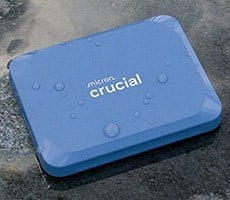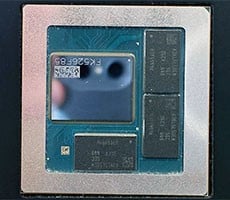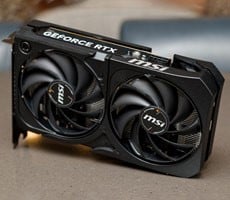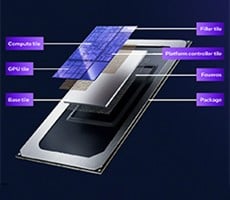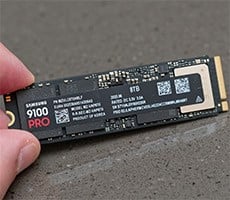OCZ Vertex 4 Indilinx Everest 2-Infused SSD
Performance Summary: The new OCZ Vertex 4 performed very well in the majority of our tests, but there were some obvious strong points that standout. Random reads and writes are where the Vertex 4 really shines, and performance got better as queue depths increased. The drives put up some of the best scores we’ve seen in IOMeter with 100% random access, performance is consistent with both incompressible and highly-compressible data, and in the CrystalDiskMark 4K QD32 test, the new Vertex 4 drives obliterated all of the other drives we tested. In the trace-based PCMark7 storage benchmark, the Vertex 4 drives also performed well, but trailed the SandForce-based drives by a small margin. With respect to sequential reads, however, the Vertex 4 drives seemed to falter in the SANDRA and HDTune tests. The numbers we saw in those tests don’t seem to correlate to real-world performance though.
To test sequential reads (and writes) we also did some real-world file copy tests using a 5.7GB compressed file and timed the results. As you’d expect looking back at the Vertex 4’s write performance, it came in with the best write speeds. The Vertex 4’s read performance trailed the SandForce-based Vertex 3, but only by a small amount.

The OCZ Vertex 4
![]() The new OCZ Vertex 4 solid state drives proved to be solid performers according to our tests, although the drives do not offer the generational leaps in performance some might have come to expect from OCZ’s Vertex series. The Vertex 2 was a much better performer than the original. And the Vertex 3 crushed the Vertex 2 upon its arrival. The Vertex 4, however, doesn’t clearly lead the Vertex 3 across the board. There are some obvious improvements in random access performance and at higher queue depths, and the Indilinx Everest 2 platform does not suffer from any compression-related performance degradation like SandForce’s current controllers, but the Vertex 4 can’t match the Vertex 3’s (and other high-end SandForce-based drives) with sequential reads.
The new OCZ Vertex 4 solid state drives proved to be solid performers according to our tests, although the drives do not offer the generational leaps in performance some might have come to expect from OCZ’s Vertex series. The Vertex 2 was a much better performer than the original. And the Vertex 3 crushed the Vertex 2 upon its arrival. The Vertex 4, however, doesn’t clearly lead the Vertex 3 across the board. There are some obvious improvements in random access performance and at higher queue depths, and the Indilinx Everest 2 platform does not suffer from any compression-related performance degradation like SandForce’s current controllers, but the Vertex 4 can’t match the Vertex 3’s (and other high-end SandForce-based drives) with sequential reads.

*Pricing as of April 3, 2012
Regardless, the Vertex 4 is still a very good performing solid state drive. OCZ has set the MSRPs of the Vertex 4 512GB and 256GB drives we tested at $699 and $349, respectively. That works out to about $1.47 per GB, although we expect street prices to be somewhat lower once drives are widely available. At those prices, the Vertex 4 is less expensive than competing SandForce-based drives, but somewhat more expensive than Crucial’s Marvel-based M4 or the Samsung SSD 830. That’s fair considering the Vertex 4 offers class-leading performance in a number of scenarios. We should also point out that OCZ is offering a 5-year warranty on these drives, which is two years longer than the Vertex 3, and a testament to OCZ’s faith in their long-term reliability.

|
|
|
|
|


